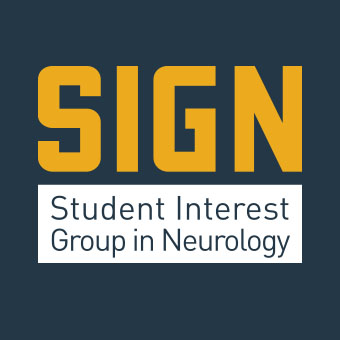What is a neurologist?
Your career in neurology
A neurologist is a medical doctor with specialized training in diagnosing, treating, and managing disorders of the brain and nervous system including, but not limited to, Alzheimer’s disease, amyotrophic lateral sclerosis (ALS), concussion, epilepsy, migraine, multiple sclerosis, Parkinson’s disease, and stroke.
A child or pediatric, neurologist specializes in the diagnosis and treatment of neurologic disorders in children from the neonatal period through adolescence. Some of the conditions overlap with those seen by adult neurologists, and others are unique to this younger population. Child neurologists treat many of the same common conditions found in adults such as migraine, epilepsy, stroke, and Tourette’s and are also trained in conditions related to neurogenetics and developmental problems.
What Does a Neurologist Do?
Diagnose
Neurologists are highly trained clinicians capable of diagnosing complex conditions through detailed history and physical examination, including testing of mental status, vision, speech, strength, sensation, coordination, reflexes, and gait. Even as medicine becomes more dependent on technology, the neurological exam will remain a critical component of the patient evaluation.
Performs Tests
Some common neurologic tests used to complete the evaluation include:
- Computed tomography (CT) or computer-assisted tomography (CAT) scans
- Magnetic resonance imaging (MRI)
- Electroencephalography (EEG)
- Nerve conduction studies and electromyography (NCS/EMG)
- Lumbar puncture (LP) for cerebral spinal fluid analysis
Performs Procedures
We are different from neurosurgeons as we do not perform brain or spinal cord surgery. However, neurologists and neurosurgeons work closely together for several conditions, sometimes even in the operating room together.
General neurologists perform various procedures including LP and NCS/EMG. Subspecialty-trained neurologists also perform intraoperative brain and spine monitoring, autonomic testing, endovascular procedures including angiograms and coiling of aneurysms, botulinum toxin injections, skin and muscle biopsies.

Why Choose Neurology?
Curious why neurology would make a strong career, or what neurologists treat?

How to become a neurologist
Ready to become a neurologist or just curious as to what it would take?

Your career in neurology
What does it mean to have a career in neurology?

Make a Difference with Neurology
Neurology is an exciting and fast-growing field that creates real-life solutions that help everyday people.
 SIGN
SIGN
Join or start a chapter at your institution today